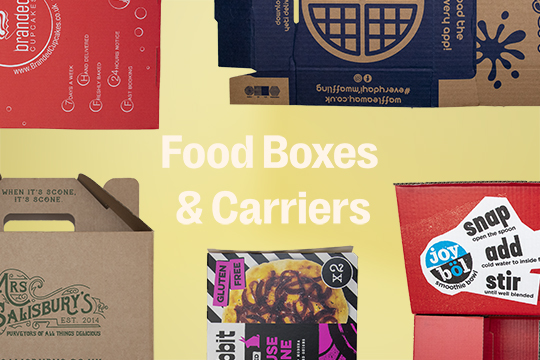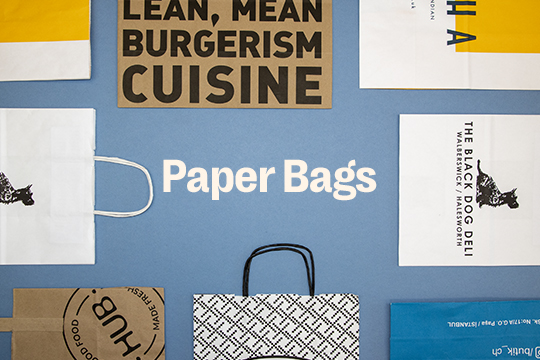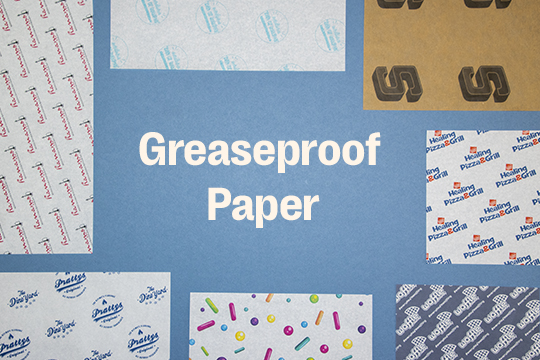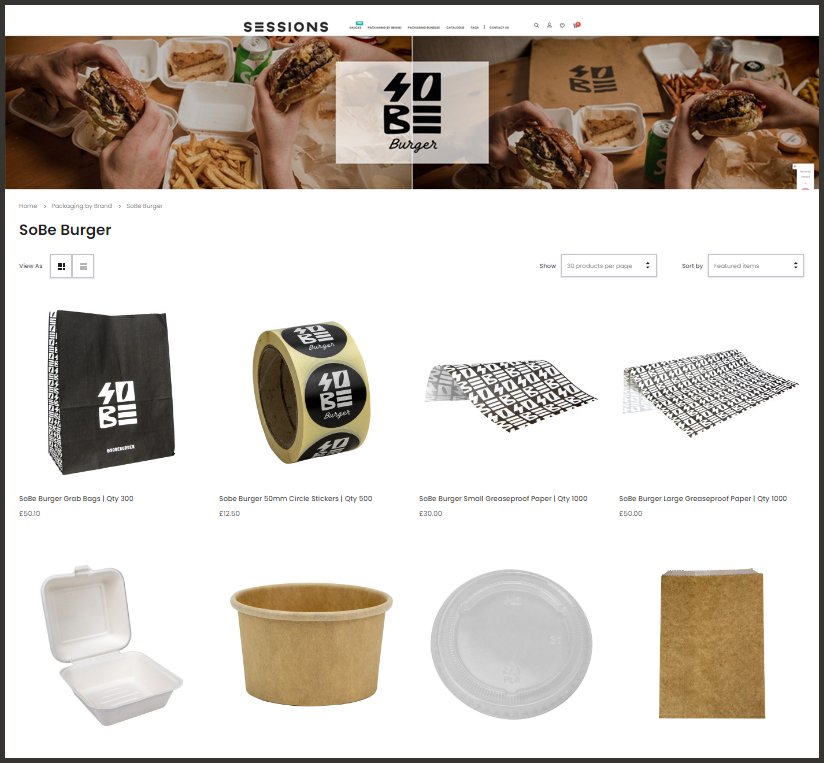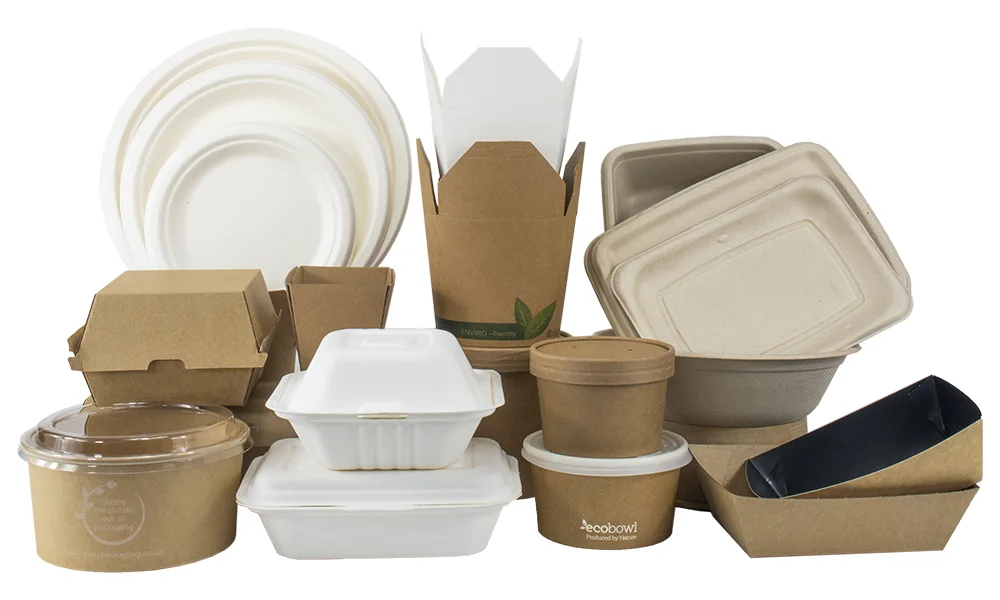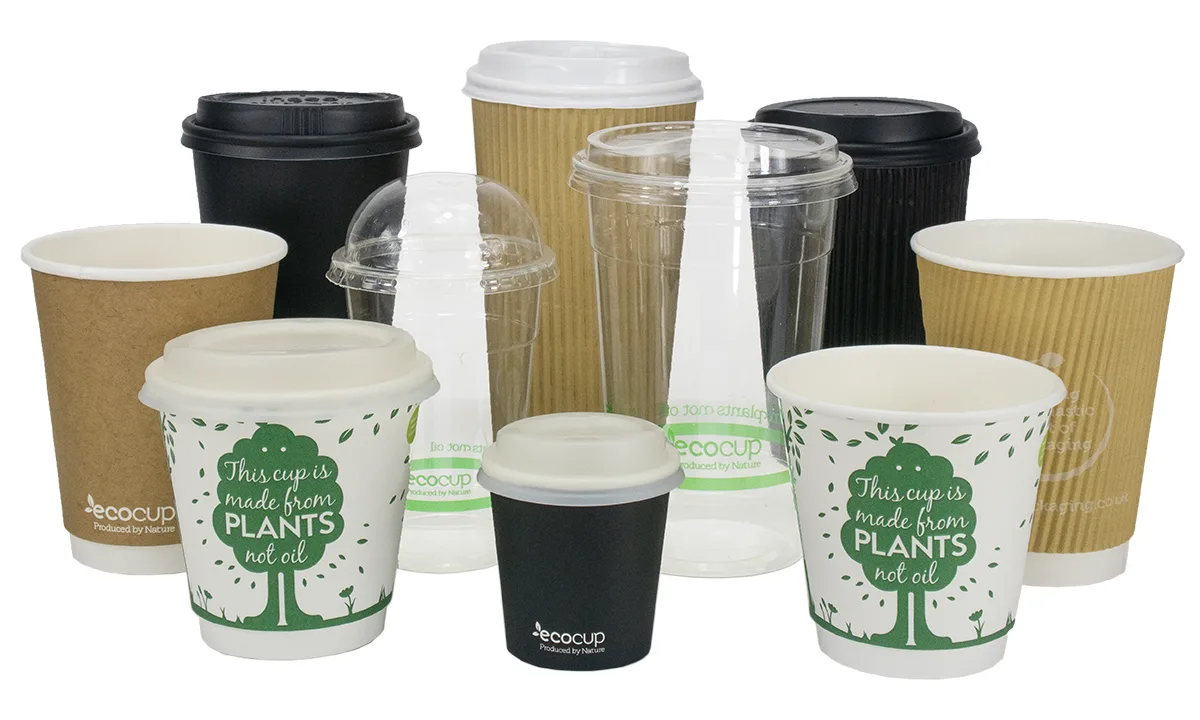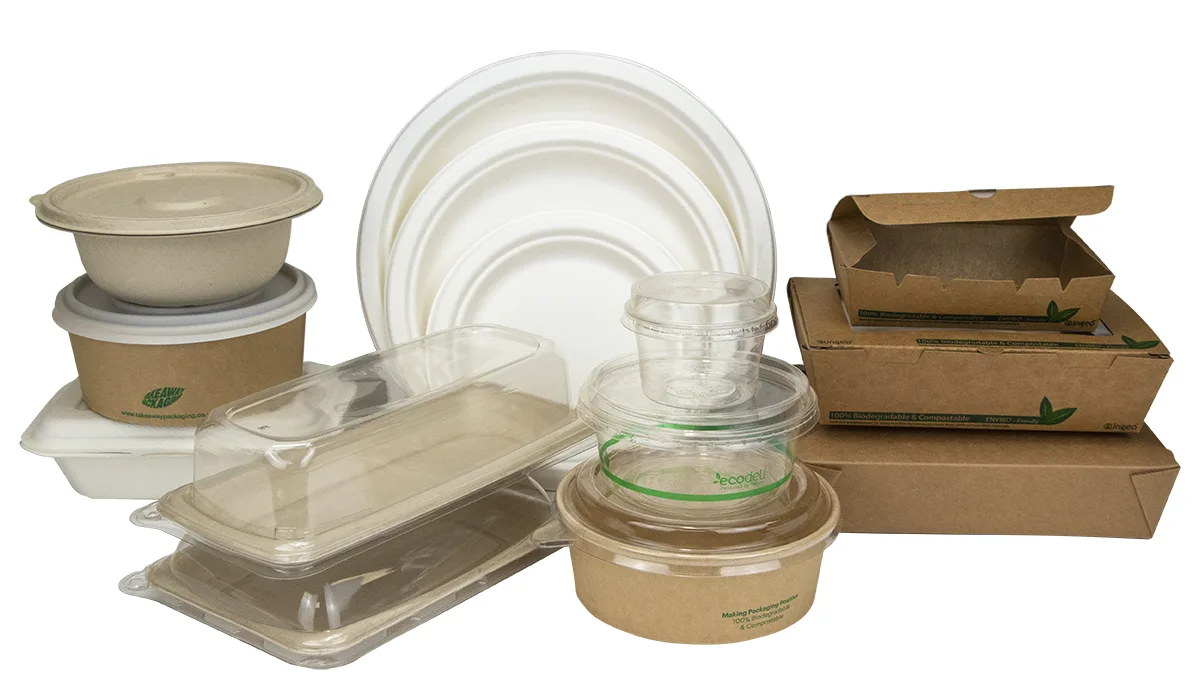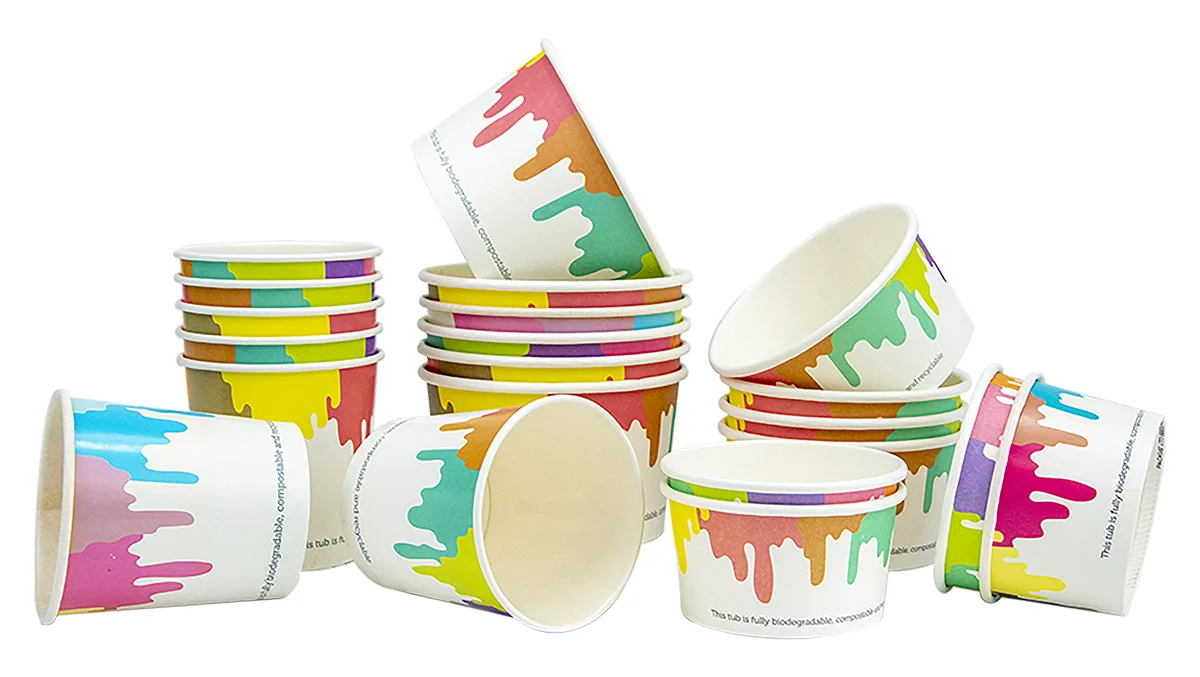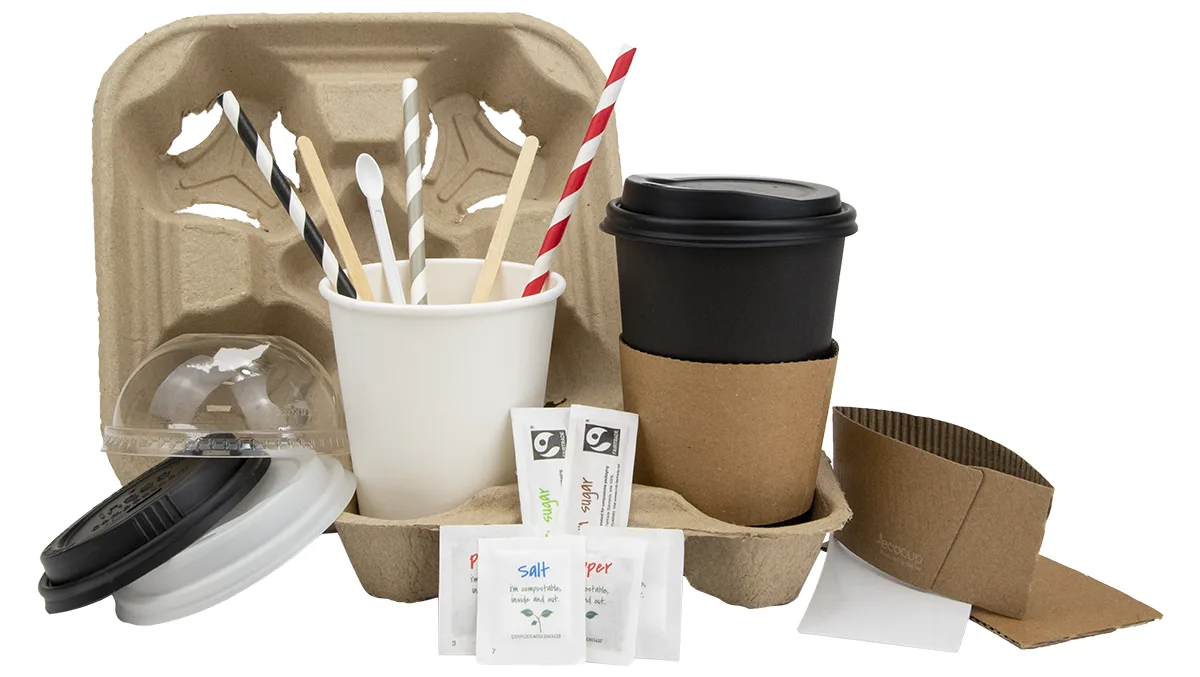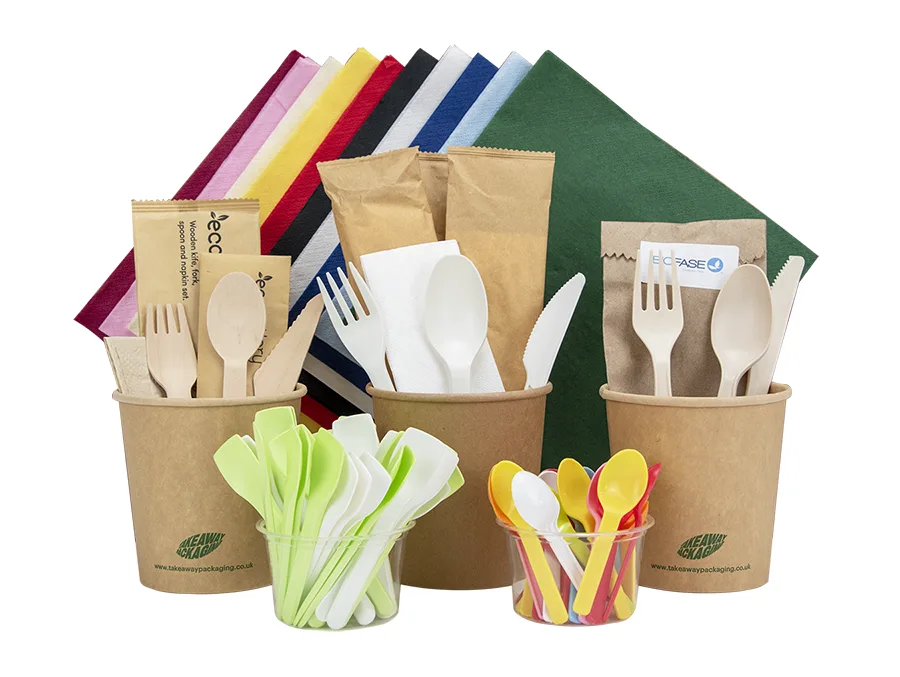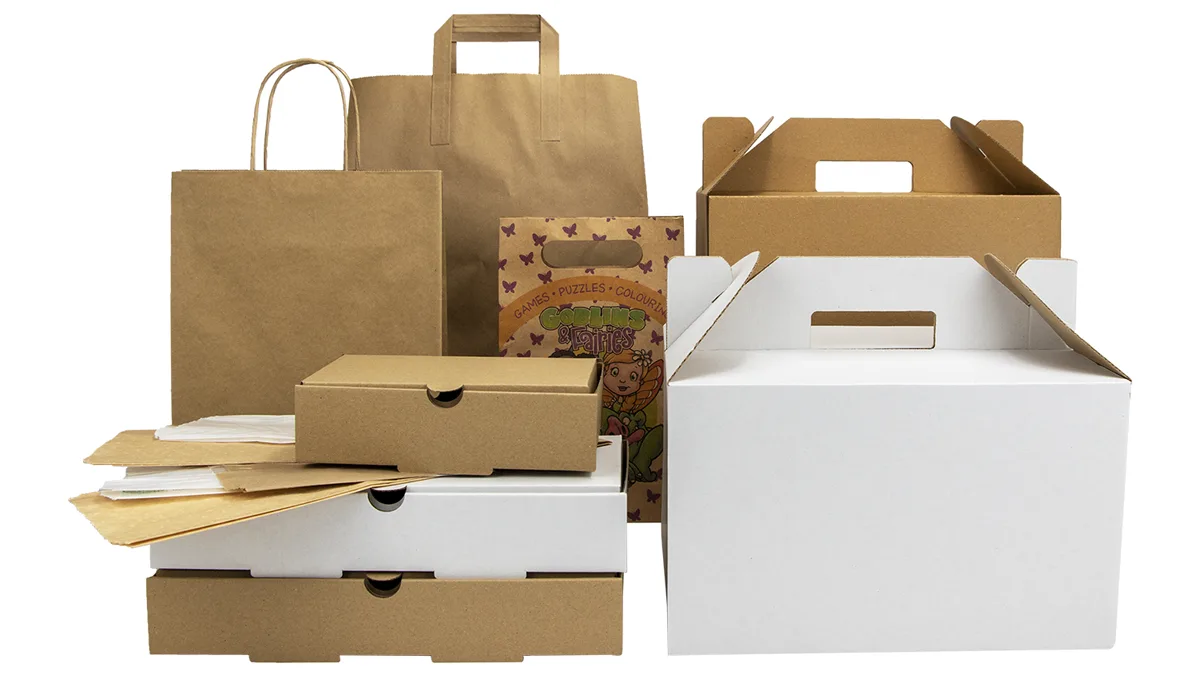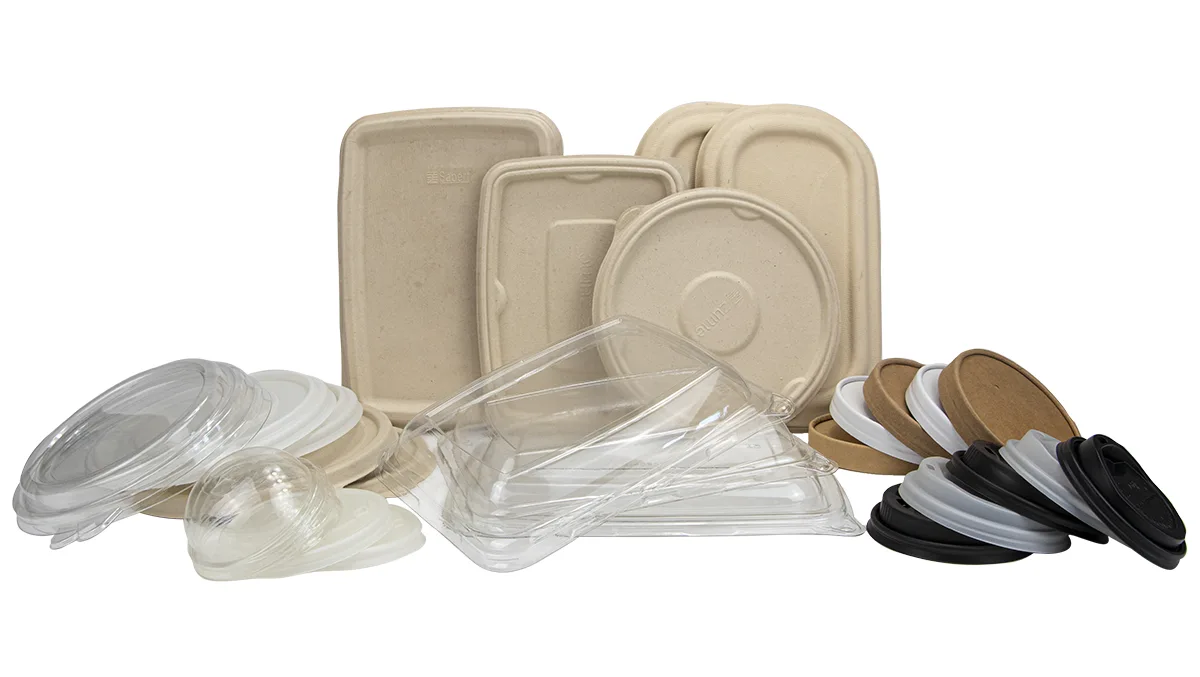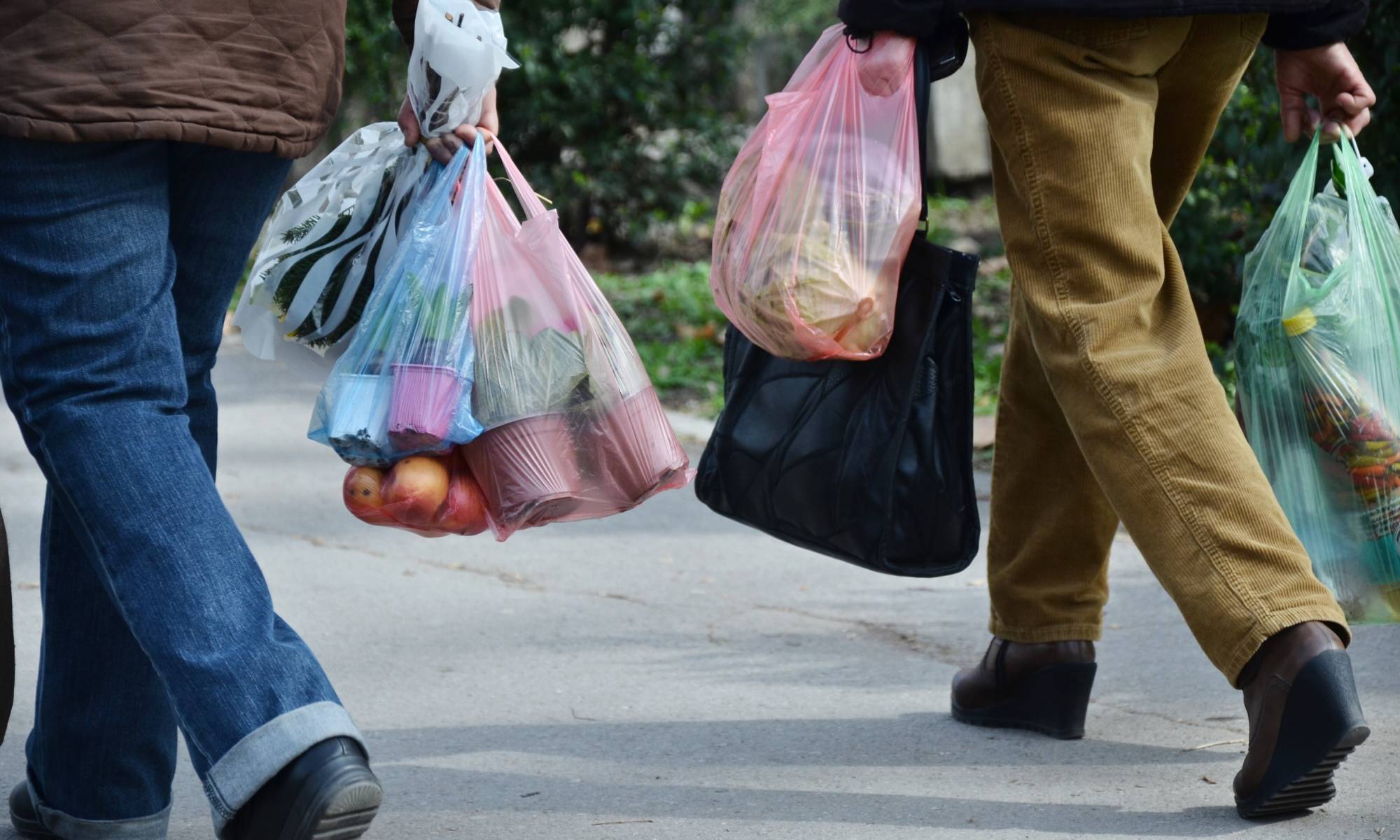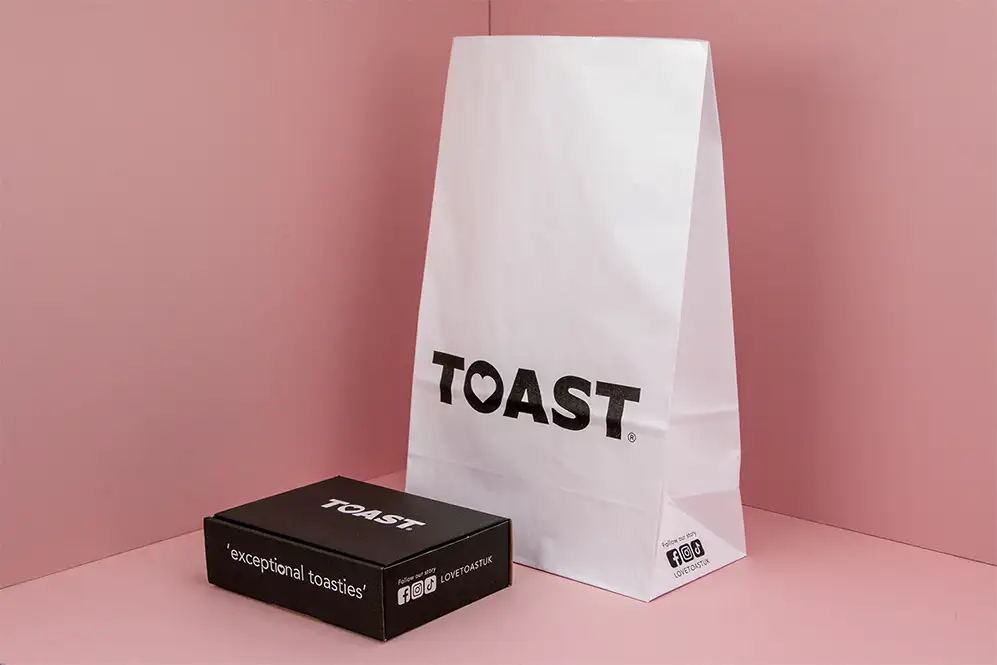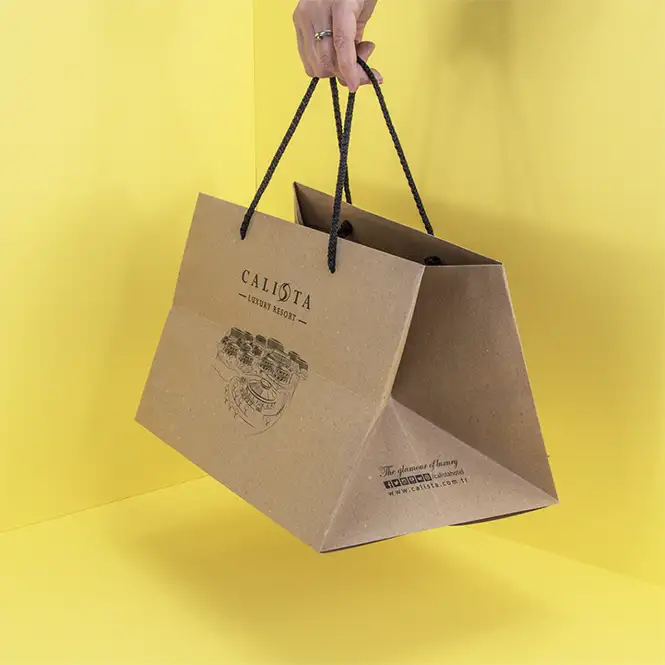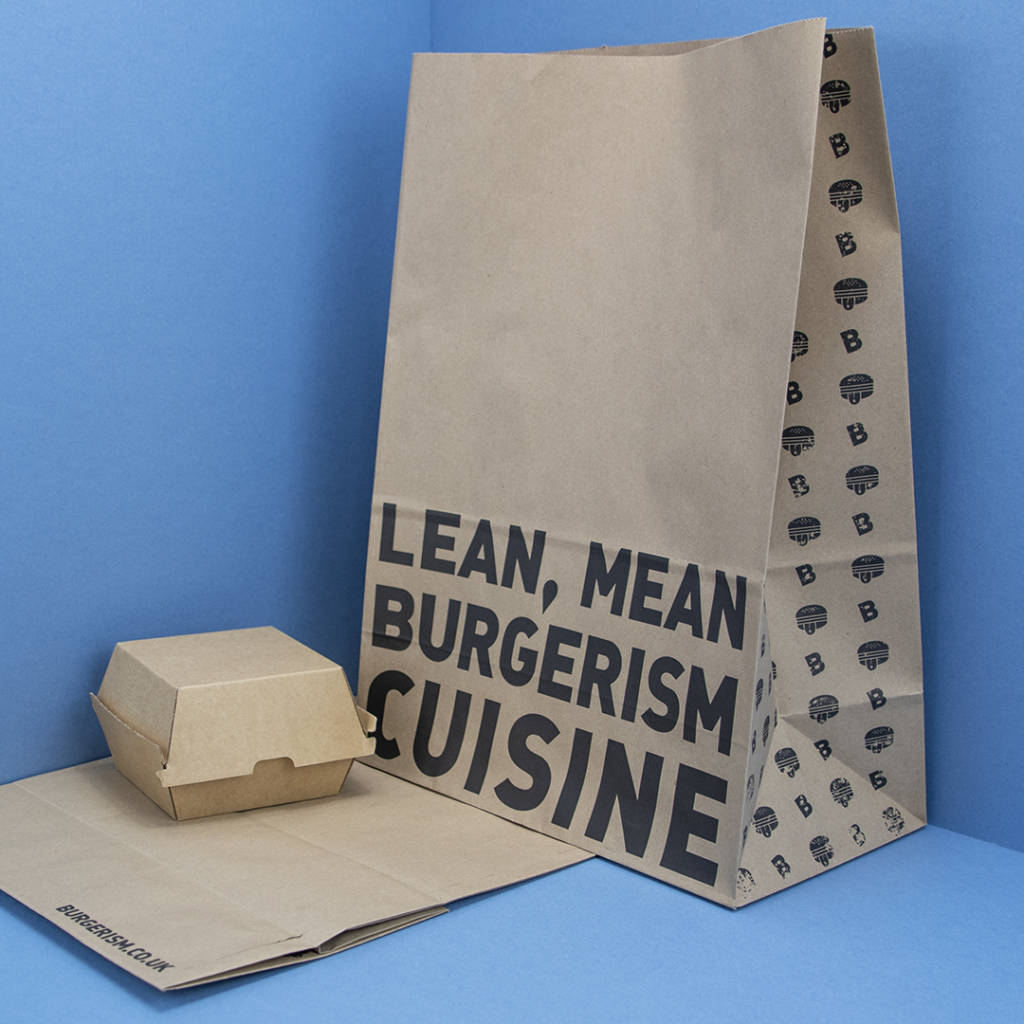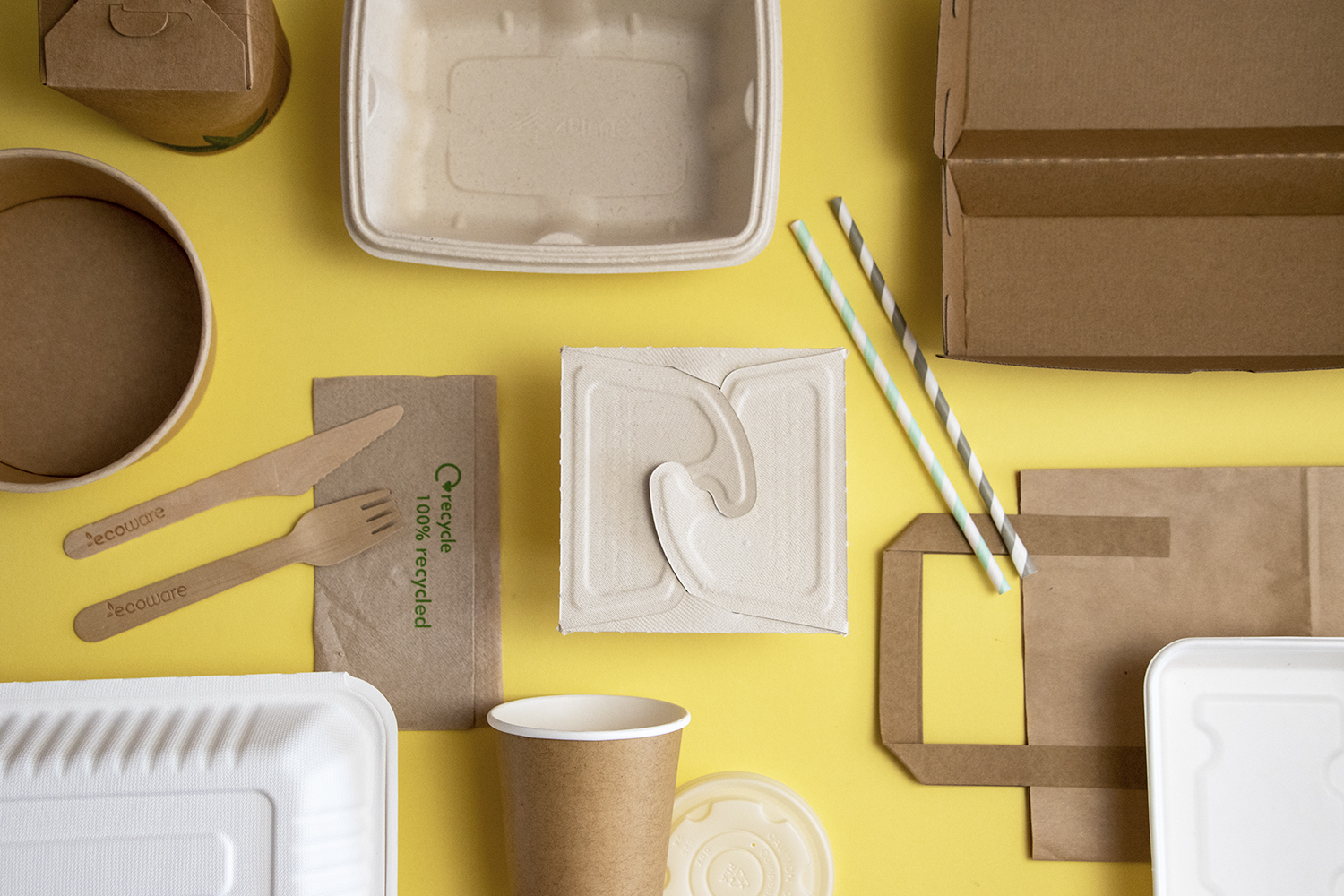In October 2015, a five-pence fee for plastic carrier bags came into effect in England, requiring all supermarkets and large stores to charge a minimum of 5p for every single-use carrier bag they gave out.
Since the law’s introduction, we have seen several developments. The plastic bag charge increased to 10p per bag in April 2021 and was extended to all shops, not just supermarkets.
So has the UK plastic bag charge worked? Yes, it has!
Since the scheme was introduced, the number of bags sold by major supermarkets has decreased by more than 95% in England.
But what does this mean for the future? Will selling plastic bags be banned altogether? Will supermarkets return to using paper bags like those used before plastic bags became popular? Let’s find out.
Related: The Facts: Fast Food Packaging Waste Statistics
Why Was the Plastic Bag Charge Introduced?
To understand where we’re heading, we need to know why a charge for plastic bags was introduced. Before the law was introduced in 2015, more than 7.6 billion single-use carrier bags were given to customers by major supermarkets in England.
That accounts for a lot of plastic waste, most of which has ended up in landfills, even though some plastic bags are recyclable. This is one of the main reasons why the scheme was introduced — to help protect the environment.
The government aimed to reduce our collective reliance on single-use carrier bags and the litter associated with them by encouraging people to reuse bags and carriers. Ultimately, the campaign has successfully heightened public awareness of the issues surrounding single-use plastic bags and the potential damage they cause.
Are Plastic Bags Bad for the Environment?
The plastic carrier bags used by supermarkets in the UK are made with polyethylene (PE), a product of the fossil fuel industry. Even if you opt for a recycled plastic bag, this kind of material takes over 20 years to decompose, sometimes far longer.
Much of the plastic products and packaging in circulation today will be around for centuries. From the moment they’re manufactured, plastic bags have uncertain futures. Once they’ve fulfilled their initial purpose, it’s left to the consumer to decide their fate — the vast majority of plastic bags end up in general waste.
This is mainly because they perish quickly — splitting, ripping or tearing as part of general use. Not only is this inconvenient, but it also raises questions for consumers about what to do with plastic bags once they’re no longer fit for their original purpose.
With this in mind, it’s essential to consider how the population feels about being charged for carrier bags.

How Do People Feel about the Plastic Bag Charge?
Initially, it was no surprise that many people resented paying for bags that were once handed out for free. There were reports of shoppers stealing plastic bags to avoid paying, but large retailers could face fines if they don’t charge for plastic bags less than 70 microns thick.
On the other hand, most Britons support the plastic bag charge. Respondents said they’re actively trying to cut down on the plastic they use and would support further government policies to reduce plastic usage.
In addition, half of Brits say they would pay more for products with eco-friendly packaging, while two-thirds of Britons think that all UK companies should be required by law to use packaging that isn’t harmful to the environment.
With this level of consumer support, it’s clear that people are more concerned about the environment than in previous years.
Related: Recyclable vs Compostable vs Biodegradable Packaging: What’s the Difference?
When Are You Not Charged for a Carrier Bag?
Sometimes, the single-use carrier bag charge doesn’t apply. The law states that retailers are not required to charge for the following:
- Paper Bags
- Sealed transit bags used for alcohol and tobacco
- Bags which only contain certain items that may cause a safety risk.
The latter includes unwrapped food, such as raw meat and fish, prescription medicines, uncovered blades, seeds, bulbs and flowers, although for the most part, there will be a charge for a plastic carrier bag.
The former — paper bags — pose an opportunity for businesses to avoid the plastic bag charge while providing convenient, disposable carriers that don’t harm the environment.
Where Does the Plastic Bag Charge Go?
If you’re wondering where the money from the plastic bag charge goes, most retailers donate plastic bag charges to charities. The government expects retailers to donate some or all of the proceeds from plastic bag sales to good causes. Still, it isn’t mandatory, and retailers are allowed to deduct reasonable costs.
Are Paper Bags Better for the Environment than Plastic Bags?
To effectively tackle the environmental issues surrounding carrier bags, we need to take a holistic view of how plastic bags and paper bags and other alternatives are used and disposed of:
| | Plastic Bags | Paper Bags |
Energy Usage | Less | More |
Reusable | Yes | Yes* |
Recyclable | Yes** | Yes |
Biodegradable | No | Yes |
Compostable | No | Yes |
*Kraft paper bags made from high-quality materials can be used multiple times, but they’re not as durable as plastic bags.
**Plastic bags are recyclable but need to be taken to specialist facilities since you cannot recycle them at home.
It’s worth noting that plastics have other negative effects on the environment, too. When plastics decompose, they deteriorate into microplastics that profoundly impact the environment and pose a genuine threat to human health.
Are Compostable Bags Better than Plastic Bags?
To avoid excess plastic packaging, many large-scale retailers have introduced compostable bags. Some retailers have taken this a step further. For example, Co-op has stopped selling plastic “bags for life” and completely replaced them with compostable carriers.
So what about the bags themselves?
Compostable bags have similar characteristics to the thin, single-use plastic bags consumers are used to seeing, without some of plastic’s environmental drawbacks. Under the right conditions, they degrade much faster than their plastic counterparts.
The general advice is that compostable bags shouldn’t be composted at home. Since you can’t recycle them, they don’t remedy the problems that the plastic bag charge was trying to solve.
Retailers are still charging for compostable bags, though, encouraging consumers to bring their own bags — or purchase heavy-duty reusable bags for a premium price at the checkout.
Related: What Is Compostable Packaging?

Has the UK’s Plastic Bag Charge Made a Difference?
The plastic bag charge is one of many legislation changes that affects businesses and consumers alike. In the UK, it has directly impacted the sale and usage of single-use carriers, indicating a clear shift in consumer behaviour.
Further laws, taxes and regulations have followed, including bans on single-use plastics — such as straws, stirrers and even polystyrene takeaway containers — and the Plastic Packaging Tax (PPT), affecting the import of non-recycled plastics.
Charging for plastic bags has underpinned the argument that consumers should reuse carriers as much as possible to protect the environment. Importantly, when bags inevitably cease to be useful, they should try to dispose of them responsibly.
Where possible, compostable and biodegradable packaging should be used to minimise the negative impact this kind of packaging has on the environment.
Looking for eco-friendly packaging solutions? Replace your plastic carrier bags with paper bags and food carriers today.


